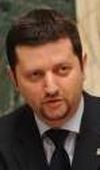-
Calin Hintea, Babes-Bolyai University, Department of Public Administration, Cluj-Napoca, Romania, hintea@fspac.ro

-
Roger Hamlin, Michigan State University and Babes-Bolyai University, hamlin@msu.edu

Main focus and working aims
The aim of the Working Group is Public Administration Education in its broadest sense (curriculum development, curriculum technology, e-learning, teaching technology, best practices, research on education, quality assurance, modern management of public administration programmes, international accreditation, etc.).
The Working Group also focuses on those interested in the management of public administration education because they are in charge of public administration programmes, manage public administration departments or like to share experiences with public administration teaching.
Over the years, the Working Group has hosted a variety of presentations and debates concerning higher education in the field of public administration, as well as presentations by relevant stakeholders from specialised international organisations as EGPA, EAPAA, NASPAA, and ASPA.
This Working Group is striving to offer a comparative view of the way in which higher education in the field of public administration is perceived and implemented at international level and to offer best practices for universities and countries which are searching to improve their current situation.
Specific goals
For the 2022 Conference, the coordinators propose a special focus on the capacity of PA programmes to adapt and react to the changes of the environment. We are facing more and more challenges in key areas as: the content of curriculum, the methods of teaching, the relationship with the students, the digital transformation, the new management requirements and internationalisation.
The pandemic crisis only highlighted the need for a flexible and adaptive approach of professors and managers working in PA Schools and programmes. We would like to analyse and discuss possible solutions and approaches to the challenges.
The Working Group intends to publish, in the long run, an edited book on this subject. The volume might include analyses of these challenges as they apply to various geographic locations, as well as trans-national analyses on this subject.
Guidelines for contributors
The working group is interested in papers connected broadly to higher education in public administration (topics such as teaching, research, curriculum development, internationalisation, national and international accreditation, programme management, etc.). We are interested in papers employing both qualitative and quantitative methods. The Group encourages a comparative approach at international level in dealing with the aforementioned topics as well as the development of practical solutions/suggestions based on the universities’ own experiences which can also be transferred to other organisations.
Papers can address the field of higher education understood in a broad way – this means that authors can address both traditional forms/programmes in higher education as well as training for civil servants, online learning, open courses, etc.).
The abstract should show very clearly a strong connection with the PA education field in order to be accepted. Papers should contain between 7 and 30 pages.
From participants of this working group full paper is required before the conference.
Deadline of full paper submission is 20th of May 2022.
You can find manuscript guidelines on THIS LINK.
